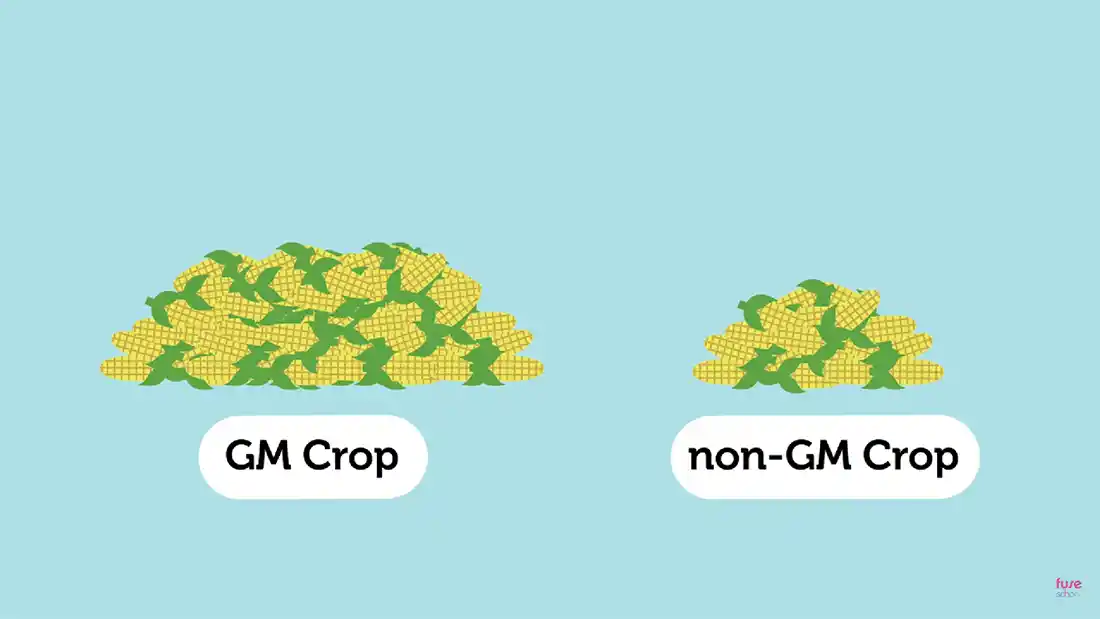

Genetic, modification, genes, plants, yield, DNA, ethical, Gregor Mendel.
Genetic modification isn't something new when it comes to plants. It has been done for decades, either with reason or by accident through cross-breeding of species. It has raised discussions over its ethicality, and some people don't want to eat modified foods. Modification can come in many forms, and was originally undertaken by scientists like Gregor Mendel at the start of the Eugenics period of genetics way back in 1883.
Basically, it can be where plants are changed in their genetic makeup to remove or add traits or behaviours to change how it looks, or to make it resistance to bacteria, or to change it's colour from one to another.
The following still is from a video on genetic modification, with the following details:
Please click on the image to view the video.

This is done on a celullar level, and at the seed stage of the plant (or tuber, or bulb, depends on the plant in question). Scientists sit in a lab making these changes to make a plant resistant to bacteria or pathogens, for example. This can have both advantages and disadvantages.
Let's have a look at a type of plant - sweetcorn. It has been grown for years and years to make available to eat or to make popcorn with. One species may have a fuller flavour than another, but another species may provide more crop. So, to solve the issues between the two, the genes are modified.
Scientists will take the gene that makes the species that has the higher yield and place it into the other species that has the fuller flavour, thus giving you, technically, a new species.

Apples are all clones. Because the fruit just grow as they want, it is difficult to get conformity (which is what supermarkets want). Farmers graft the branches from successful years to a young tree at the right time in its life to maximise the conformity results.
So, I touched on this earlier. Genetic modification is a big ethical issue. Some people think that it's not a good thing at all, because when you modify the plant's DNA and genetic information, you alter the plant into something that is almost classed as mutated.
Others think that the modification is a good thing for reasons like being resistant to disease, giving a bigger yield, growing taller, and so on. While this may be a good thing for our growing populations, some believe it's not good as we will always expect things to be this way, or bigger.
Disclaimer | About Me | Sitemap
Website design by SyntaxHTML.



Blue icons adapted from icons courtesy of Smashicons.com